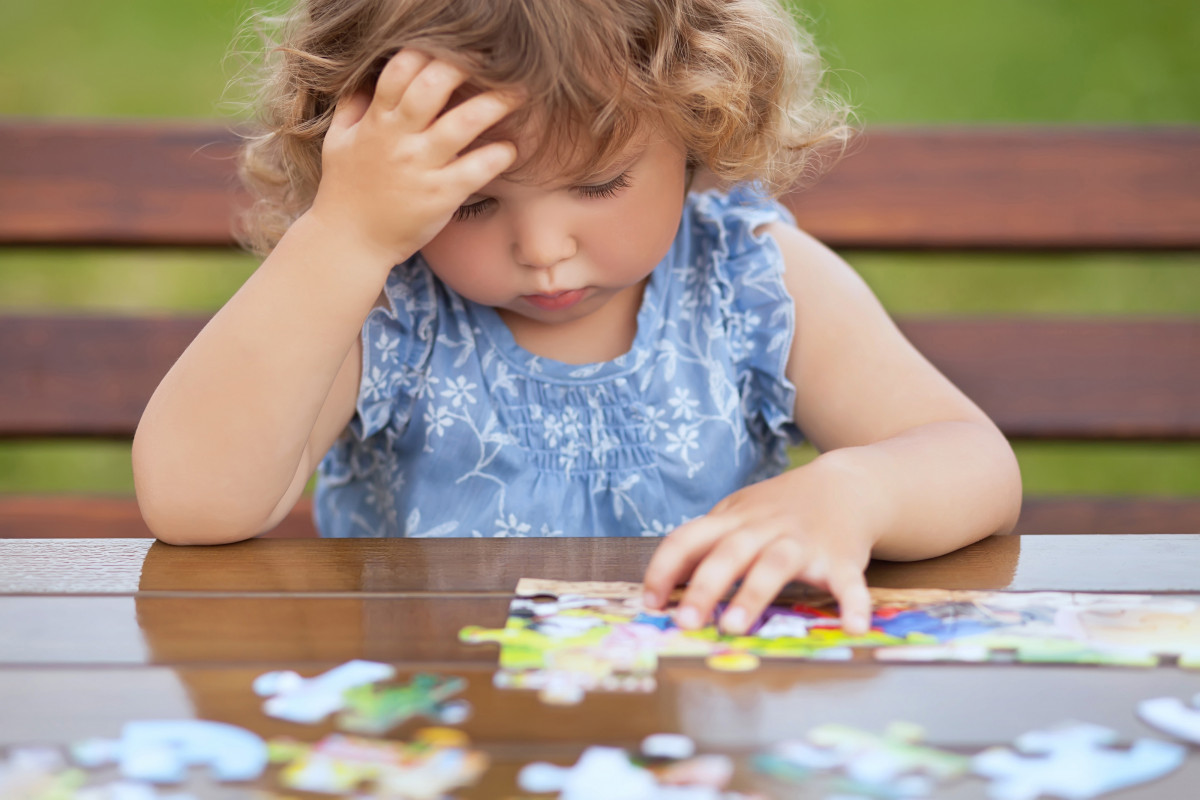Developmental delay means a child is not reaching milestones as expected. This can be in areas like moving, talking, thinking, and social skills. It’s important because it can affect a child’s future health and growth.

At LivHospital, we know how critical it is to tackle developmental delays early. Our goal is to help each child reach their full potential. We offer top-notch healthcare and support for families from around the world.
Key Takeaways
- Developmental delay is a significant lag in reaching age-appropriate milestones.
- It affects various developmental domains, including motor skills and social abilities.
- Early recognition and intervention are key to helping a child grow.
- LivHospital is dedicated to giving children with developmental delays the best care.
- Understanding developmental delay is vital for supporting children’s health and growth.
Understanding Developmental Delay
Developmental delay means a child is not growing as expected. It can affect how they move, talk, think, and interact. This can happen in different ways, impacting their growth.
Definition and Key Developmental Domains
Developmental delay shows up when a child lags behind in certain areas. These areas include:
- Gross Motor Skills: This is about big muscle movements like running and jumping.
- Fine Motor Skills: This deals with small movements, like writing and using scissors.
- Language and Communication: This covers talking, listening, and understanding.
- Cognitive Skills: This is about solving problems and learning.
- Social-Emotional Development: This is about how a child interacts and feels.
If a child is slow in two or more of these areas, it’s called Global Developmental Delay (GDD).

Normal vs. Delayed Development Patterns
It’s key to know the difference between normal growth and delays. While kids grow at their own pace, some signs might mean they’re falling behind. For example:
- Not reaching milestones on time.
- Going backward or losing skills they once had.
- Having a hard time adjusting to new places or situations.
Knowing these signs helps parents and caregivers spot problems early.
Global Developmental Delay (GDD) Explained
Global Developmental Delay is a term for kids under 5 who are slow in many areas. It can be caused by genetics, health issues at birth, or the environment. Finding and helping kids with GDD early is very important.
Getting a full check-up is key to figuring out why a child is delayed. It helps create a plan to help them catch up.
5 Common Types of Developmental Delay
It’s important to know about developmental delays to help early. Kids with these delays face many challenges. They affect their daily life and growth. Knowing the types helps parents and caregivers find the right help.

Motor Skills Delay
Motor skills delay means trouble with moving and coordinating. Kids might find it hard to crawl, walk, or run. They could also struggle with small tasks like holding things or using forks.
Early signs include not sitting up or standing without help.
Speech and Language Delay
Speech and language delay make talking and understanding hard. Kids might have trouble saying words clearly or getting what others say. They might also find it hard to talk to others.
Cognitive Delay
Cognitive delay is about thinking and learning problems. Kids with this might find it hard to learn new things or solve problems. They might not understand things that kids their age do.
Social and Emotional Delay
Social and emotional delay affects how kids interact and feel. They might have trouble making friends or understanding social cues. They also might struggle to control their feelings.
Knowing about these developmental delays helps us support kids and families. Early help is key to helping kids overcome these challenges and reach their goals.
Prevalence and Statistics of Developmental Delay
It’s key to know how common developmental delay is. This helps us give the right help and support. It affects kids all over the world, impacting their growth and development.
Global Prevalence Rates
About 1% to 3% of kids globally face global developmental delay (GDD). This means big delays in skills like moving, talking, and thinking. The numbers show we need to find and help these kids early.
United States Statistics
In the U.S., 15% of kids have at least one developmental issue. This shows how vital it is to screen and assess kids well. The developmental delay ICD-10 code helps track these issues, making sure kids get the care they need.
Gender Differences in Diagnosis
Studies show gender differences in developmental delay diagnoses. Boys are more often found to have delays like autism. Knowing this helps us tailor support to meet the needs of both boys and girls.
Looking at the statistics helps us grasp the size of the problem. Our team works hard to provide top-notch care. We aim to help kids reach their full potential.
4 Major Causes Behind Developmental Delay
Developmental delay is a complex issue with many factors at play. Knowing these causes helps us offer the right support. It involves genetics, prenatal issues, and the environment.
Studies show that it’s often a mix of genetics, pregnancy problems, and environment. “Spotting these causes early can really help,” says a top expert in child development.
Genetic Factors and Chromosomal Abnormalities
Genetics is a big part of developmental delay. Issues like Down syndrome and genetic mutations can slow a child’s growth. We offer genetic counselling to families facing these challenges.
Prenatal and Birth Complications
Pregnancy and birth problems can also cause delays. Issues like premature birth and fetal alcohol spectrum disorder can affect development. We stress the need for good prenatal care to reduce these risks.
Environmental Influences and Exposures
Environmental factors, like toxins and a lack of early stimulation, can also lead to delays. We push for a supportive environment that meets children’s needs.
Idiopathic or Unknown Etiologies
Sometimes, the reason for developmental delay is not clear. Even with thorough checks, some kids may not have a known cause. We work with families to create tailored support plans, no matter the cause.
Understanding developmental delay’s causes helps us support kids and families better. Our team is committed to providing full care and advice to those dealing with developmental delay.
Recognizing Signs of Delay in Children
It’s important to spot early signs of developmental delay in kids. As a parent or caregiver, watching for developmental milestones is key. This can greatly impact a child’s growth and development.
Developmental delays show up in different ways. Knowing these signs is critical for early help. We’ll cover red flags by age and when to get professional advice.
Red Flags by Age Group
Children grow at their own pace, but there are expected milestones. Here are some red flags to watch for:
- By 12 months: Not responding to their name, not making eye contact, or not babbling.
- By 18 months: Not pointing or gesturing, not saying any words, or not understanding simple commands.
- By 24 months: Not combining two words, not following simple instructions, or not imitating actions.
Remember, these are just guidelines. Some kids might need more time for certain skills.
The American Academy of Pediatrics says early help is vital. “Early identification and intervention can significantly impact a child’s developmental trajectory.”
“The earlier a child is identified as having a developmental delay, the sooner they can receive the necessary interventions to support their development.”
When to Seek Professional Help
If you see any red flags or have concerns, get professional help. Talk to your pediatrician or a healthcare expert. They can check your child’s skills and guide you next.
Early intervention is key for kids with developmental delays. Being proactive and seeking help early ensures your child gets the support they need to thrive.
We know every child is different. Our team is dedicated to providing care that’s accessible and complete for families around the world.
Comprehensive Diagnosis and Assessment Process
Diagnosing developmental delay is a detailed process. It uses many screening tools and evaluation methods. We know that finding developmental delay in kids needs a careful and caring approach.
The first step is the developmental screening tools. These tools spot kids who might have delays. Doctors use them during regular check-ups.
Developmental Screening Tools
These tools test kids’ growth in areas like thinking, moving, and talking. The Ages and Stages Questionnaire (ASQ) and the Modified Checklist for Autism in Toddlers (M-CHAT) are examples.
Screenings are key. They show if a child is growing as they should or if they might need help.
Comprehensive Evaluation Methods
If a screening shows a delay, a comprehensive evaluation follows. Experts like psychologists and speech therapists do this deeper check.
This check might include special tests like the Bayley Scales of Infant Development. It’s all about finding out what the child needs.
Healthcare Professionals Involved in Diagnosis
Many healthcare experts help figure out developmental delay. This team includes doctors, psychologists, and therapists.
Each expert adds their skills to the assessment. This ensures the child gets a full check-up and the right diagnosis.
Together, we offer a caring and precise diagnosis for kids with developmental delay. This helps them get the right help and support.
Early Intervention and Treatment Approaches
We know how key early intervention is in tackling developmental delays. It lays the groundwork for effective treatment. Early intervention means getting help early to spot and address any issues, helping your child stay on track.
Evidence-Based Therapies
Evidence-based therapies are at the heart of early intervention. They include occupational therapy for daily living skills, speech therapy for better communication, and physical therapy for mobility and coordination.
“Early intervention services can greatly help a child reach their full ability,” say pediatric development experts. These therapies are customized to fit the child’s needs, ensuring a personal touch in their development.
Educational Support Services
Educational support is key to a child’s growth. It includes special education programs for kids with developmental delays. By adding educational support to their care, families can give their child a well-rounded treatment plan.
Family-Centred Intervention Strategies
Family-centred strategies are vital. They involve the family in making decisions and empower them to support their child’s growth. This method creates a team effort between healthcare and families, ensuring consistent support.
Documented Outcomes of Early Intervention
Many studies show the good results of early intervention. Kids who get help early often see big improvements in their development. This makes early intervention a vital part of helping children with delays.
In summary, early intervention is not just helpful; it’s essential for addressing developmental delays. By using evidence-based therapies, educational support, and family-centred strategies, we can significantly improve the lives of children and their families.
Conclusion:
Understanding developmental delay is key to helping children who need it. It means a child is not developing as expected in physical, cognitive, or emotional areas. This can happen at any age.
It’s important to know that developmental delay doesn’t always mean a child has a disability. With the right help, children can grow and learn at their own speed. They can eventually catch up with their peers.
We’ve talked about different types of developmental delays, how common they are, what causes them, and how to spot them. We’ve also looked at how to diagnose and treat them. By using proven therapies and support, we can help children with developmental delays.
We’re dedicated to providing top-notch healthcare and support to families dealing with developmental delay. Our goal is to help these children reach their full abilities and live happy lives.
FAQ’s:
What is developmental delay?
Developmental delay means a child is not reaching milestones as expected. This can be in areas like moving, talking, thinking, and social skills.
What are the signs and symptoms of developmental delay?
Signs can vary by age and area of development. They might include trouble sitting, walking, or speaking. Children might also have issues with social skills and emotions.
What causes developmental delay?
Many things can cause developmental delay. This includes genetics, birth issues, and environmental factors. Sometimes, the cause is unknown.
How is developmental delay diagnosed?
Doctors use several steps to diagnose developmental delay. They use special tools and get input from experts like pediatricians and therapists.
What are the benefits of early intervention for developmental delay?
Early help can greatly improve a child’s development. It can lead to better social skills, emotional control, and more opportunities for growth.
What types of therapies are used to treat developmental delay?
Therapies like physical, occupational, and speech therapy are used. They work together with educational support and family help to improve skills.
How common is developmental delay?
Developmental delay is common worldwide. It affects about 1-3% of children, with rates varying by area and population.
Are boys more likely to be diagnosed with developmental delay than girls?
Yes, boys are more often diagnosed with certain delays, like autism. The exact reasons for this are not clear.
What is Global Developmental Delay (GDD)?
Global Developmental Delay (GDD) is a big delay in many areas. It often includes cognitive, motor, and language skills. It’s usually seen in children under 5.
What support services are available for families affected by developmental delay?
Families can get help like counselling, educational support, and respite care. These services help with the challenges and opportunities of caring for a child with developmental delay.
References
- Majnemer, A., & Limperopoulos, C. (2018). Developmental delay. Current Opinion in Pediatrics, 30(6), 843-850. https://doi.org/10.1097/MOP.0000000000000694
- Centers for Disease Control and Prevention. (2022). What Is Developmental Monitoring and Screening?. Retrieved from https://www.cdc.gov/ncbddd/childdevelopment/screening.html
- U.S. National Library of Medicine. (2023). Developmental Delay. Retrieved from https://medlineplus.gov/developmentaldelay.html









